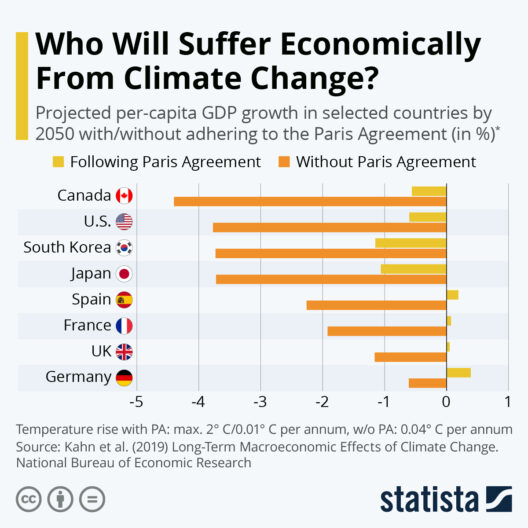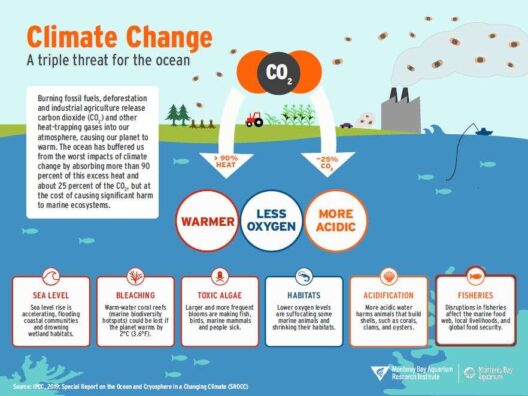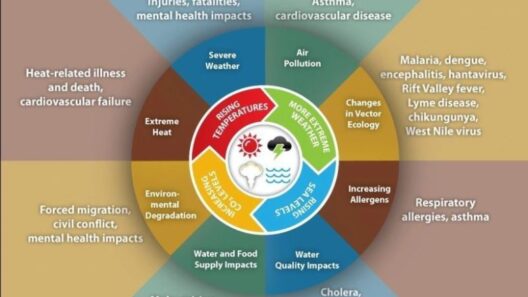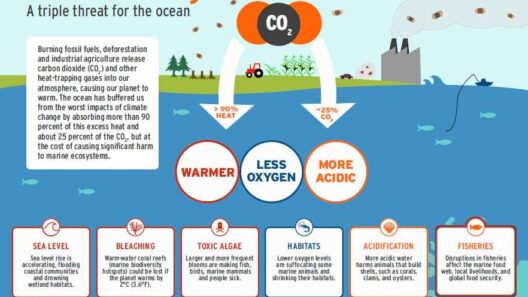Climate change is no longer a distant concern; it has become an urgent crisis demanding immediate attention. As the global temperature rises, natural disasters, rising sea levels, and changing weather patterns escalate, affecting not just the environment, but also public health, economies, and entire ecosystems. Individuals often feel overwhelmed by the scale of the problem, wondering, “What can I do to make a difference?” The truth is, everyone has the potential to contribute to reducing global climate change. Here’s a comprehensive guide on how you can effectively make an impact.
Understanding the Harrowing Reality
Before delving into actionable steps, it’s essential to understand the intricacies of climate change. It is driven predominantly by greenhouse gas emissions, particularly carbon dioxide and methane, resulting from human activities such as burning fossil fuels, deforestation, and industrial processes. The sheer scale of these emissions has reached alarming levels, rendering global temperatures markedly higher than pre-industrial averages. Understanding this reality fosters a sense of urgency and responsibility.
1. Reduce Energy Consumption
Your household energy consumption is a significant contributor to your carbon footprint. By implementing energy-efficient practices, you can play a pivotal role. Start by replacing incandescent bulbs with energy-saving LED alternatives. Not only do they consume less power, but they also last longer. Embrace the habit of unplugging electronics when not in use; devices still draw energy in standby mode, collectively known as phantom loads.
Additionally, consider investing in energy-efficient appliances. Look for the ENERGY STAR label, indicating products that meet strict energy efficiency guidelines. Adopting smart thermostat technology can reign in heating and cooling costs by optimizing your energy use according to your lifestyle.
2. Embrace Sustainable Transportation
Transportation is a major source of greenhouse gas emissions, particularly within urban settings. Transitioning from single-occupancy vehicles to more sustainable modes of transport can yield significant benefits. If possible, opt for public transport, carpooling, cycling, or walking, thereby contributing to a reduction in traffic congestion and air pollution.
Furthermore, if you are in the market for a new vehicle, consider electric or hybrid options which produce fewer emissions than traditional gasoline or diesel-powered vehicles. Even minor changes in daily habits can lead to substantial cumulative effects over time.
3. Advocate for Renewable Energy
Transitioning to renewable energy sources is paramount in the fight against climate change. While individual actions are essential, collective advocacy holds the power to drive systemic change. Advocate for renewable energy initiatives at local, state, and national levels. Support policies that promote solar, wind, and hydroelectric power development.
If feasible, consider installing solar panels to power your home. Though there is an upfront cost, the long-term savings on electricity bills and the environmental benefits are considerable. Additionally, financial incentives and subsidies often exist to assist homeowners in transitioning to renewable energy sources.
4. Rethink Your Diet
The food we consume significantly impacts the environment. The livestock industry is one of the largest contributors to greenhouse gas emissions, deforestation, and water consumption. Adopting a more plant-based diet can substantially reduce your carbon footprint. Incorporating more vegetables, grains, and legumes into your meals can lead to a healthier lifestyle while also aiding the planet.
Participating in local farmer’s markets or community-supported agriculture (CSA) programs can reduce the carbon emissions associated with transporting food over long distances. Purchasing seasonal and locally-sourced products ensures fresher options while minimizing environmental impact.
5. Minimize Waste Generation
Waste management may seem trivial in the face of climate change, yet it plays a crucial role. Landfills release methane, a potent greenhouse gas. By adopting a zero-waste philosophy, which emphasizes the reduction, reuse, and recycling of materials, individuals can significantly alleviate their environmental burden.
Implement a robust recycling program at home. Familiarize yourself with local recycling guidelines, as they can vary by municipality. Composting is another excellent method to diminish waste while enriching the soil. This organic practice diverts food scraps and yard waste from landfills while promoting healthy soil production.
6. Educate and Inspire Others
Awareness is the first step to inciting change. Share your knowledge regarding climate change with family, friends, and social networks. Engage in discussions that highlight the urgency of the issue and practical solutions that can be implemented. Social media serves as a powerful tool to amplify the message, reaching broader audiences and sparking community involvement.
Participating in local environmental groups, attending workshops, or volunteering for eco-friendly initiatives can further embed you in a community dedicated to climate action. By inspiring your peers, you create a ripple effect that can lead to collective action and a more informed society.
7. Support Climate-Conscious Brands
Consumer choices wield tremendous power. Support businesses that prioritize sustainability and ethical practices. Research companies that focus on reducing their carbon footprint, minimizing waste, and supporting fair trade practices. By choosing to purchase products or services from transparent brands, you contribute to a marketplace that values environmental responsibility.
Conclusion
Reducing global climate change is an endeavor that requires collective action across various facets of society. While large-scale changes are critical, individual efforts play a fundamental role in fostering meaningful progress. By implementing energy-efficient practices, embracing sustainable transport, advocating for renewable energy, rethinking dietary choices, managing waste, educating others, and supporting ethical brands, you can significantly contribute to the fight against climate change. Each step, no matter how small, reverberates through the fabric of society, creating a more sustainable future for generations to come.






